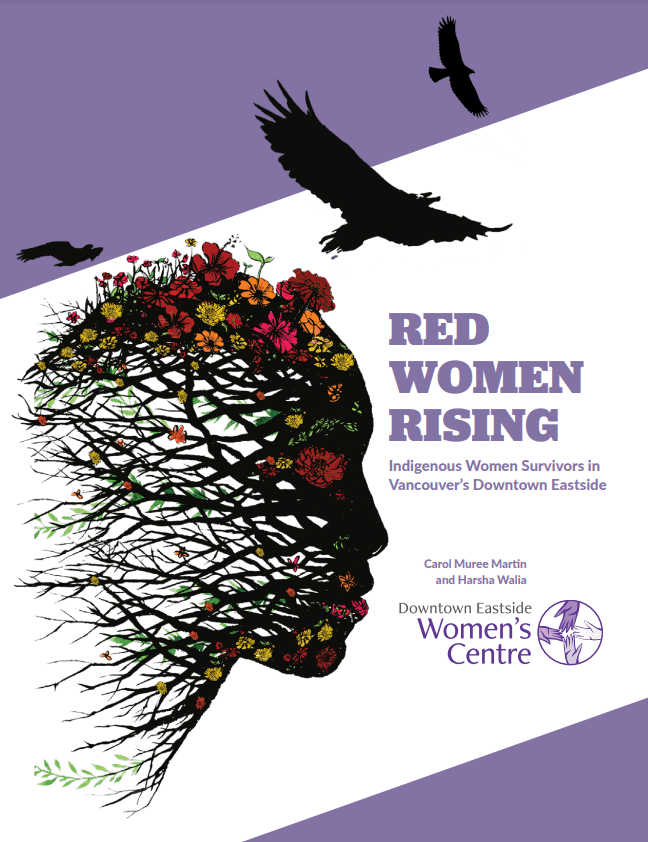Search the Baseline Project
To search the recommendations database, please visit the database main page.
To search the recommendations database, please visit the database main page.

In 2019, the Downtown Eastside Women’s Centre published the report entitled “RED WOMEN RISING: Indigenous Women Survivors in Vancouver’s Downtown Eastside” and written by Carol Muree Martin (Nisga’a – Gitanyow) and Harsha Walia. This report is the first comprehensive project with Indigenous women survivors in the DTES figuring at the very centre of community research, rather than as a secondary statistic.